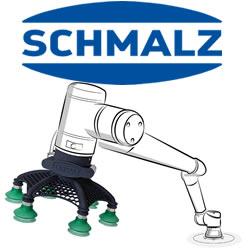We Robot 2014 to be Held in Coral Gables, Florida, on April 4-5, 2014
Robotics is becoming a transformative technology.
We Robot 2014 builds on existing scholarship exploring the role of robotics to examine how the increasing sophistication of robots and their widespread deployment everywhere from the home, to hospitals, to public spaces, and even to the battlefield disrupts existing legal regimes or requires rethinking of various policy issues.
"We Robot 2014: Risks & Opportunities" is a conference at the intersection of the law, policy, and technology of robotics, to be held in Coral Gables, Florida on April 4-5, 2014. We Robot is now in its third year, returning to the University of Miami School of Law after being hosted by Stanford Law School last April. The conference and registration web site is at http://robots.law.miami.edu/2014.
If you are on the front lines of robot theory, design, or development, we hope to see you. Come join the conversations between the people designing, building, and deploying robots, and the people who design or influence the legal and social structures in which robots will operate.
Topics of interest of the conference include:
*Risks and opportunities of robot deployment in the workplace, the home, and other contexts where robots and humans work side-by-side.
*Issues related to software-only systems such as automated trading agents.
*Regulatory and licensing issues raised by robots in the home, the office, in public spaces (e.g. roads), and in specialized environments such as hospitals.
*Design of legal rules that will strike the right balance between encouraging innovation and safety, particularly in the context of autonomous robots.
*Issues of legal or moral responsibility, e.g. relating to autonomous robots or robots capable of exhibiting emergent behavior.
*Usage of robots in public safety and military contexts.
*Privacy issues relating to data collection by robots, either built for that purpose or incidental to other tasks.
*Intellectual property challenges relating to robotics as a nascent industry, to works or inventions created by robots, or otherwise peculiar to robotics.
*Issues arising from automation of professional tasks such as unauthorized practice of law or medicine.
*How legal scholars should think about robots, and how roboticists should think about the legal code.
Featured Product

Schmalz Technology Development - The Right Gripper for Every Task
In order to interact with their environment and perform the tasks, lightweight robots, like all industrial robots, depend on tools - and in many cases these are vacuum grippers. These form the interface to the workpiece and are therefore a decisive part of the overall system. With their help, the robots can pick up, move, position, process, sort, stack and deposit a wide variety of goods and components. Vacuum gripping systems allow particularly gentle handling of workpieces, a compact and space-saving system design and gripping from above. Precisely because the object does not have to be gripped, the vacuum suction cupenables gapless positioning next to each other.
